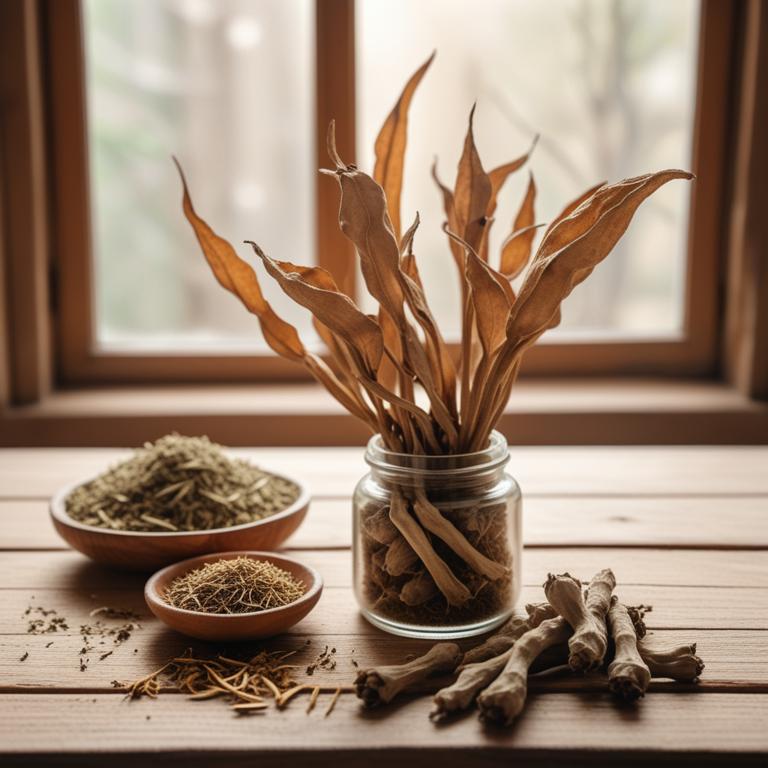Updated: Dec 1, 2024
Tooth Decay: Causes, Prevention, and Herbal Preparations

Tooth decay is a common problem that can cause a lot of pain and discomfort.
It happens when bacteria in your mouth produce acid that eats away at your teeth, creating holes and eventually leading to tooth loss. This can make eating and speaking difficult, and even affect your self-confidence. Tooth decay is often caused by a combination of factors, including poor oral hygiene, a diet high in sugar, and not visiting the dentist regularly. Herbal remedies can be a helpful addition to your oral care routine. Certain herbs have antibacterial and anti-inflammatory properties that can help prevent and treat tooth decay. For example, aloe vera gel has been shown to reduce inflammation and promote healing in the mouth.
You can apply aloe vera gel directly to your teeth and gums, or drink aloe vera juice as a mouthwash. Cloves and neem have also been used for centuries to prevent tooth decay. Cloves contain a compound called eugenol, which has antibacterial properties that can help kill bacteria in the mouth. Neem, on the other hand, has been shown to reduce inflammation and prevent the growth of bacteria. You can make a tea by steeping cloves or neem in hot water, or mix them with other herbs to create a mouthwash. To use these herbal remedies, you can try drinking teas made from cloves or neem, or applying aloe vera gel directly to your teeth and gums. You can also add a few drops of neem oil to your toothpaste or mouthwash for extra antibacterial protection.
Remember to always practice good oral hygiene and visit your dentist regularly to prevent and treat tooth decay.
Table of Contents
- What triggers tooth decay in the first place?
- What benefits can be gained from using herbs to combat tooth decay?
- What are the key medicinal herbs for combating tooth decay?
- What are the top herbal remedies for the prevention and treatment of tooth decay?
- What herbs should you be cautious about consuming if you have tooth decay?
- FAQ
What triggers tooth decay in the first place?
The main causes of tooth decay are primarily related to our daily habits and lack of proper care.
Poor oral hygiene is a significant contributor, as food particles and bacteria accumulate on our teeth when we don't brush regularly. Inadequate fluoride exposure is another cause, as fluoride helps to strengthen tooth enamel and make it more resistant to decay. Consuming frequent sugary snacks is also a major culprit, as bacteria in our mouths feed on sugar and produce acid that damages tooth enamel.
This is why it's essential to limit our sugar intake and choose healthier options. Infrequent brushing allows bacteria to thrive, making it more likely for tooth decay to occur. Additionally, irregular flossing can lead to trapped food particles and plaque buildup, which can cause tooth decay.
If we don't floss regularly, it can lead to inflammation of the gums, making it easier for bacteria to penetrate deeper into our teeth, causing decay.
What benefits can be gained from using herbs to combat tooth decay?
Using herbs for tooth decay can be a great way to prevent and even reverse the problem.
One of the main benefits is that herbs have natural antibacterial properties, which help kill the bacteria that cause tooth decay. This can help reduce the risk of cavities and gum disease.
Some herbs can also help reduce inflammation and kill germs in the mouth, which can help prevent bad breath and gum disease. Additionally, certain herbs have been shown to strengthen tooth enamel, making teeth more resistant to decay. This can also help prevent the need for fillings or other treatments.
Some herbs can even help reduce plaque and tartar buildup on teeth, making it easier to keep teeth clean and healthy.
What are the key medicinal herbs for combating tooth decay?

Herbs have been used for centuries to prevent and treat tooth decay.
Let's look at some specific herbs that can help. Echinacea purpurea is known for its ability to boost the immune system, which is essential for fighting off the bacteria that cause tooth decay. Its anti-inflammatory properties also help reduce gum inflammation. Syzygium aromaticum, also known as clove, contains eugenol, a natural antiseptic that kills bacteria in the mouth. It also numbs the gums, reducing sensitivity and pain. Using clove oil or chewing on a whole clove can help alleviate toothache and gum problems.
Melaleuca alternifolia, or tea tree oil, has antibacterial properties that can kill the bacteria that cause tooth decay. It also reduces inflammation and can help prevent bad breath. Salvia officinalis, or sage, has been used for centuries to freshen breath and prevent gum disease. It contains compounds that reduce inflammation and kill bacteria in the mouth. Zingiber officinale, or ginger, has anti-inflammatory properties that can help reduce gum inflammation and kill bacteria in the mouth. It also reduces pain and can help alleviate nausea and other symptoms associated with tooth decay.
These herbs can be used in various forms, such as essential oils, teas, or tinctures, and can be incorporated into your oral hygiene routine.
What are the top herbal remedies for the prevention and treatment of tooth decay?
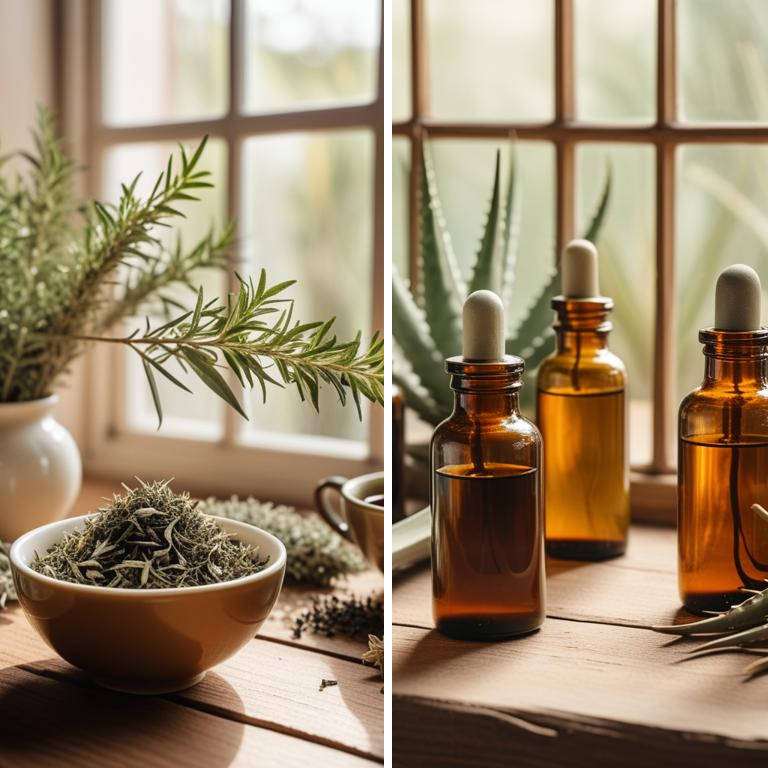
Herbal preparations can be a great way to prevent tooth decay and promote oral health.
One of the simplest ways to use herbs is by making tea from them. For example, tea made from sage can help reduce inflammation in the gums, while tea made from cloves can kill bacteria that cause tooth decay. Decoctions, on the other hand, involve boiling herbs in water to release their active compounds. A decoction made from myrrh can help reduce plaque and prevent tooth decay.
Herbal tinctures are concentrated liquid extracts that can be applied directly to the teeth and gums. Tinctures made from eucalyptus can help reduce inflammation and kill bacteria, while tinctures made from peppermint can freshen breath and reduce plaque. Herbal gels and salves can also be used to prevent tooth decay. Gels made from aloe vera can help soothe and calm the gums, while salves made from calendula can help reduce inflammation and promote healing.
These herbal preparations can be used as a natural alternative to conventional toothpaste and mouthwash, and can be especially beneficial for people who are sensitive to harsh chemicals or have specific oral health needs.
Additional Resources:
What herbs should you be cautious about consuming if you have tooth decay?
If you have tooth decay, it's best to use herbs with care, especially those that can make issues worse.
Thymus vulgaris, also known as thyme, is a strong herb that can dry out your mouth. This can make it harder for your teeth to stay healthy, as your mouth needs saliva to wash away bacteria and food particles. Similarly, Rosmarinus officinalis, or rosemary, can also dry out your mouth. This can be a problem if you already have dry mouth, which is a common issue for people with tooth decay. Rosemary is often used to freshen breath, but if your mouth is already dry, it might not help as much as you'd like. Mentha x piperita, or peppermint, might not seem like it would cause any problems, but it's actually quite strong.
If you have tooth decay, eating or drinking peppermint can be too harsh for your teeth and mouth. This is especially true if you have sensitive teeth or gums, as peppermint can make these issues worse. Cinnamomum verum, or cinnamon, is another herb to use with caution if you have tooth decay. Cinnamon can be very drying, which can make it harder for your mouth to stay healthy. If you do decide to use cinnamon, try to use it in moderation and mix it with other herbs that are easier on your mouth. Myrtus communis, or myrtle, is a herb that can be quite strong. It's often used to freshen breath, but if you have tooth decay, it might not be the best choice.
Myrtle can be too harsh for your teeth and mouth, especially if you have sensitive teeth or gums.
FAQ
Are there any specific herbs that can prevent tooth decay?
Some herbs, like neem and clove, have been studied for their potential to prevent tooth decay.
Neem's antibacterial properties may help stop the growth of bacteria that cause cavities, while clove's eugenol can numb and protect tooth enamel.
These herbs may be used as mouthwashes or added to toothpaste for their possible benefits.
Is it safe to use herbal remedies for tooth decay during pregnancy?
It's best to use caution when using herbal remedies during pregnancy.
Some herbs can cause problems or interact with other substances. For example, willow bark, which contains salicylic acid like aspirin, can be a concern.
It's also not clear if herbal remedies can prevent tooth decay as well as regular dental care.
Are there any herbs that can reduce the frequency of tooth decay?
Some herbs like neem and clover have been studied for their potential to reduce tooth decay.
Neem's antibacterial properties help fight germs that cause cavities, while clover's antioxidants may help prevent damage to teeth.
These herbs can be used as natural mouthwashes or added to toothpaste for added protection.
Can i combine different herbal remedies for tooth decay?
You can combine different herbal remedies for tooth decay, but be careful with the ingredients.
For example, mixing aloe vera with neem oil and clove oil might help soothe and kill bacteria in your mouth.
However, use them in small amounts and avoid using too many different herbs at once, as this can cause more harm than good.
Related Articles
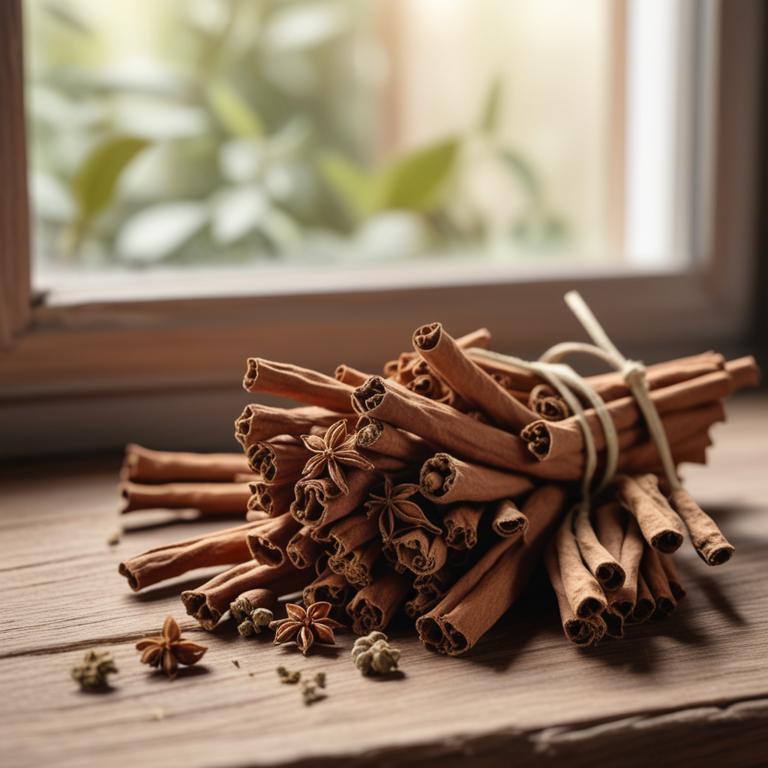
Oral Thrush: Understanding the Causes, Medicinal Herbs, and Herbal Solutions for Relief
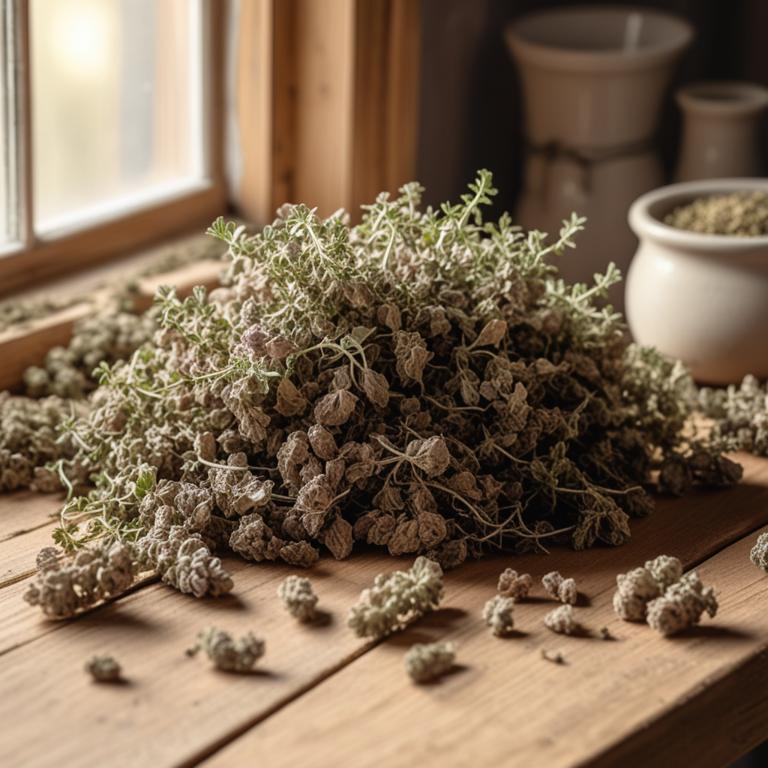
Open Pores: The Causes, Medicinal Herbs, and Herbal Remedies for Healthy Skin

Natural Dermatitis Treatment: Causes and Medicinal Herbs
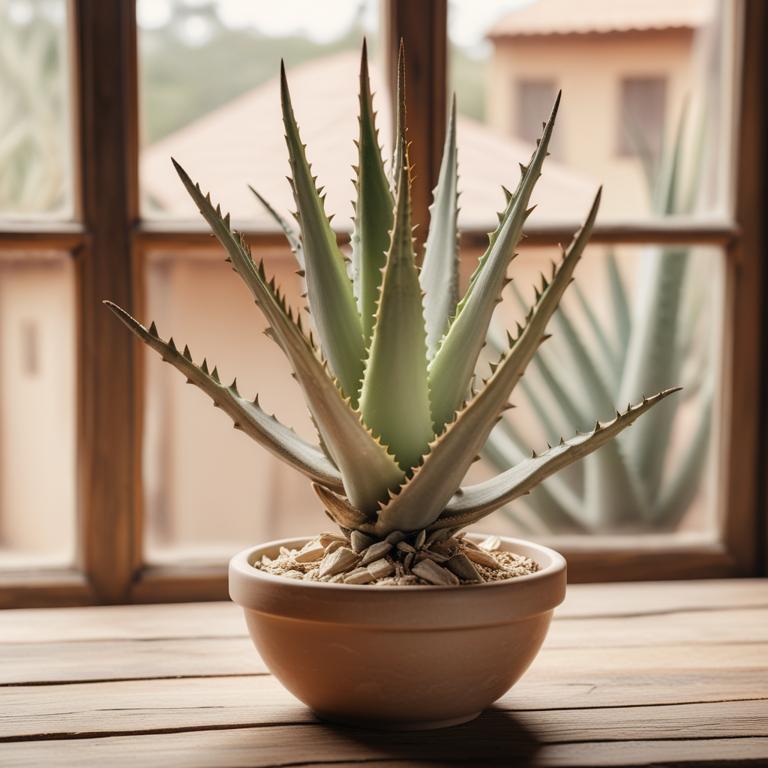
Causes and Herbal Remedies for Psoriasis: A Comprehensive Guide
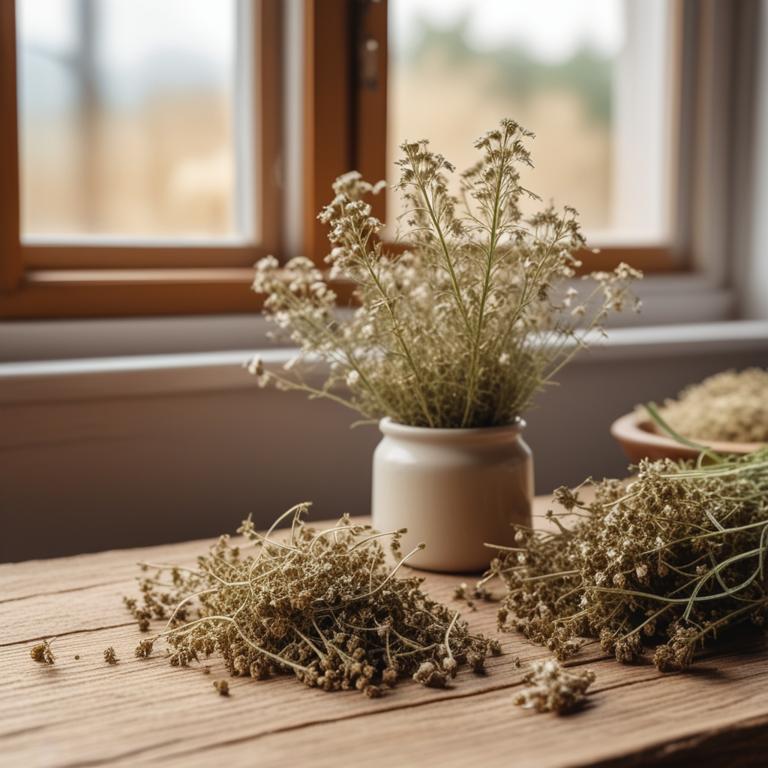
Natural Remedies for Dry Eyes: Causes, Medicinal Herbs, and Herbal Preparations
